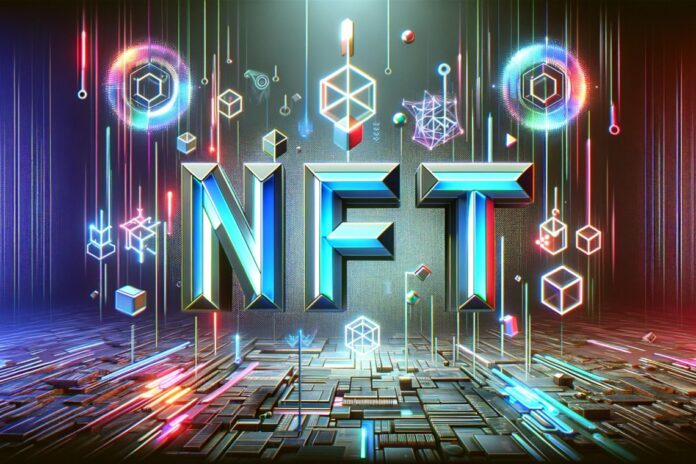Non-fungible tokens (NFTs) have emerged as a revolutionary force in the digital landscape, transforming the way we perceive ownership, copyright, and how we exchange digital assets.
Summary
The NFT copyright law is complete: US authorities claim
However, with their lightning-fast rise, concerns about intellectual property (IP) rights and copyright infringement have emerged. In response to these concerns, the U.S. Copyright Office and the U.S. Patent and Trademark Office (USPTO) have undertaken a joint study to assess the adequacy of existing laws in addressing copyright issues related to NFTs.
The results of the study, recently published, state that current laws are indeed sufficient to address issues of violation of NFTs.
The comprehensive study conducted by the U.S. Copyright Office and the USPTO highlights the dynamic nature of NFT technology and its impact on the intellectual property sector. Despite the rapid evolution of NFTs, the report concludes that it would be premature to enact new specific laws for NFTs at this time.
The focus should instead be on strengthening public education initiatives to promote greater awareness among creators, investors, and consumers.
Kathi Vidal, Under Secretary of Commerce for Intellectual Property and Director of the USPTO, emphasized the dual nature of NFTs in the intellectual property landscape. On one hand, NFTs present unparalleled opportunities for creators to leverage their intellectual property rights, while on the other hand, they pose new challenges for safeguarding their creative works. The study acknowledges the need for a nuanced approach to address these challenges without stifling innovation or hindering the potential of NFT technology.
The study of US authorities
One of the key elements that emerged from the study is that, although NFT technology introduces new concepts, the copyright issues it raises are not entirely new. In essence, the fundamental principles of copyright law remain applicable to NFTs. Therefore, cases in which NFTs incorporate or link to unauthorized copies of copyrighted works are subject to the same legal scrutiny as any other form of unauthorized reproduction or display.
The proactive stance taken by the U.S. Copyright Office and the USPTO in conducting this study underscores the government’s commitment to keeping pace with technological advancements and their implications for intellectual property rights. The study was initiated in response to a request from the Subcommittee on Intellectual Property of the Senate Judiciary Committee and reflects a collaborative effort between legislative and executive bodies to address emerging issues in the digital age.
The conclusion that existing laws are sufficient to handle NFT copyright issues has significant implications for stakeholders in various sectors. Creators can be reassured that their intellectual property rights are protected by established legal frameworks, thus encouraging innovation and creativity in the NFT space. Investors and collectors, likewise, can navigate the thriving NFT market with greater confidence, knowing that their transactions are governed by solid legal standards.
However, while the study affirms the adequacy of existing laws, it also emphasizes the importance of continuous monitoring and adaptation in response to the evolution of the technological landscape. NFT technology is still in its early stages and, with its continuous evolution, new challenges may emerge that require adjustments to existing legal frameworks.
Conclusions
Therefore, the study advocates a proactive approach that balances regulatory clarity with the flexibility necessary to adapt to future developments.
In addition to regulatory measures, the study highlights the critical role of public education in addressing copyright issues related to NFTs.
Greater awareness among creators, platforms, and consumers is essential to promote a culture of compliance and respect for intellectual property rights in the NFT ecosystem. By promoting a deeper understanding of copyright law and its application to NFTs, public education initiatives can mitigate the risk of infringement and promote responsible engagement with digital assets.
In conclusion, the joint study conducted by the U.S. Copyright Office and the USPTO provides valuable insights into the intersection between NFT technology and intellectual property rights. By affirming the sufficiency of existing laws in addressing NFT copyright issues, the study offers reassurance to stakeholders, while also calling for continued vigilance and education. As NFTs continue to reshape the digital landscape, maintaining a delicate balance between innovation and regulation will be essential to fully harness their potential, while safeguarding the rights of creators and investors.




